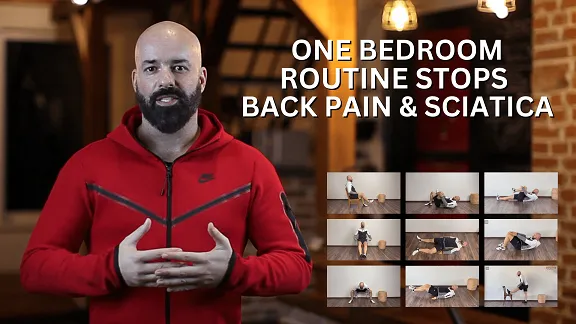Are you tired of the 9-to-5 grind and yearning for the freedom to work on your own terms? If so, then building a successful freelance career might just be the path for you. In this article, we will explore the essential steps to help you embark on your journey towards professional independence and thrive in the world of freelancing. From finding your niche to building a strong client base, we will uncover the secrets to establishing a fulfilling and profitable freelance career. So, grab a cup of coffee, sit back, and let’s dive into the incredible world of freelancing!

- Identify Your Skills and Expertise
- Create a Portfolio
- Build a Strong Online Presence
- Networking and Building Relationships
- Set Clear Goals and Plan
- Establish a Pricing Structure
- Develop Effective Communication Skills
- Master Time Management
- Continuous Learning and Professional Development
- Maintain Work-Life Balance
Identify Your Skills and Expertise
Reflect on your strengths and interests
When starting a freelance career, it is essential to identify your skills and interests. Take some time to reflect on what you excel at and what you genuinely enjoy doing. Consider the tasks that you find fulfilling and the ones that come naturally to you. Make a list of your strengths, whether they are technical skills, creative abilities, or interpersonal qualities. By recognizing your unique talents, you can leverage them in your freelance career and find projects that align with your interests.
Assess your professional experience
Another crucial aspect of identifying your skills and expertise is assessing your professional experience. Take a look at your previous work and projects, whether they were paid or not. Consider the tasks, responsibilities, and achievements you accomplished. This assessment will help you understand what skills you have developed through your past experiences and how they can be applied to your freelance career.
Determine your niche or specialization
To stand out in the freelance market, it is important to determine your niche or specialization. Think about the area in which you have the most expertise and enjoy working. By focusing on a specific niche, you can position yourself as an expert and attract clients who are looking for specialized services. It is better to be a master in one domain than a jack of all trades – specializing can help you establish yourself as a go-to professional in your field.
Identify transferable skills
In addition to your specialized skills, it is also important to identify transferable skills that can be applied across different industries and projects. These skills can include communication, problem-solving, project management, or teamwork. Identifying your transferable skills allows you to diversify your client base and take on a wider range of projects. These skills are often highly valued by clients and can help you stand out from the competition.
Create a Portfolio
Gather samples of your work
One of the key elements of building a successful freelance career is having a portfolio to showcase your work. Gather samples of your best work from previous projects, whether they are finished products, design mockups, or written content. These samples will demonstrate your skills and expertise to potential clients, providing them with tangible evidence of your abilities.
Showcase a variety of projects
When creating your portfolio, it is important to showcase a variety of projects. This demonstrates your versatility and ability to adapt to different client needs. Include samples from different industries, styles, or mediums to show your range of capabilities. By showcasing a variety of projects, you can attract a wider range of clients who are looking for different types of expertise.
Highlight your best work
While it is important to showcase a variety of projects, it is equally important to highlight your best work. Choose the samples that best represent your skills and achievements. These should be the projects that you are most proud of and that truly showcase your expertise. By highlighting your best work, you can leave a lasting impression on potential clients and increase your chances of securing new projects.
Include client testimonials or reviews
To add credibility and trust to your portfolio, consider including client testimonials or reviews. These testimonials can be obtained from previous clients who were satisfied with your work. They provide potential clients with social proof and reassurance that you are a reliable and skilled freelancer. Including testimonials or reviews in your portfolio can greatly enhance your professional reputation and increase your chances of attracting new clients.
Build a Strong Online Presence
Create a professional website
In today’s digital age, having a professional website is essential for freelancers. It serves as your online storefront and allows potential clients to learn more about you and your services. When creating your website, make sure it is visually appealing, easy to navigate, and showcases your portfolio and skills. Include a clear and concise description of your services and contact information. A well-designed and informative website can greatly enhance your online presence and attract new clients.
Optimize your website for search engines
To ensure your website reaches a wider audience, it is important to optimize it for search engines. This involves using relevant keywords in your website’s content, meta tags, and headings. Additionally, regularly updating your website with fresh content can improve its search engine rankings. By optimizing your website for search engines, you increase your chances of being found by potential clients who are actively searching for your services.
Establish a strong social media presence
In addition to having a website, establishing a strong social media presence can greatly benefit your freelance career. Create accounts on platforms such as LinkedIn, Facebook, Twitter, or Instagram, depending on your target audience. Share updates about your work, interact with potential clients, and engage with relevant industry communities. By establishing a strong social media presence, you can increase your visibility and reach a wider audience.
Engage with relevant online communities
To further expand your network and strengthen your online presence, it is important to engage with relevant online communities. Join forums, groups, or communities related to your niche or industry. Participate in discussions, provide insights and advice, and contribute valuable content. By actively engaging with online communities, you can establish yourself as an expert and attract potential clients who are seeking your expertise.
Networking and Building Relationships
Attend industry-related events and conferences
Networking is a crucial aspect of building a successful freelance career. Attend industry-related events and conferences where you can connect with professionals in your field. These events provide opportunities to learn from experts, exchange ideas, and build relationships with potential clients or collaborators. Take advantage of these events to expand your network and create meaningful connections within your industry.
Join freelancer communities and online forums
Freelancer communities and online forums can provide valuable support and resources for your freelance career. Join platforms such as Freelancer.com, Upwork, or LinkedIn groups specifically created for freelancers and professionals in your field. These communities offer opportunities to connect with like-minded individuals, learn from their experiences, and seek advice or guidance. Actively participating in these communities can provide valuable insights and help you navigate the challenges of freelancing.
Collaborate with other freelancers and professionals
Collaborating with other freelancers and professionals can open doors to new opportunities and projects. Seek out partnerships or collaborations with individuals who complement your skills or offer complementary services. By working together, you can leverage each other’s networks and expertise to attract larger projects or clients. Collaboration not only enhances your skills and knowledge but also strengthens your professional relationships within the freelance community.
Ask for referrals and recommendations
One of the most effective ways to attract new clients is through referrals and recommendations. If you have satisfied clients, don’t hesitate to ask them for referrals to their network or to provide recommendations or testimonials. A referral or recommendation from a satisfied client carries a lot of weight and can greatly increase your chances of securing new projects. Don’t be afraid to reach out and ask for assistance in expanding your client base.

Set Clear Goals and Plan
Define your short-term and long-term goals
To build a successful freelance career, it is important to set clear goals for both the short-term and long-term. Define what you want to achieve in the next few months and years, both personally and professionally. These goals can include financial targets, number of clients or projects, or personal development milestones. By setting goals, you have a clear direction and purpose, which can help guide your actions and decision-making.
Break down your goals into actionable steps
Once you have defined your goals, break them down into smaller, actionable steps. This allows you to create a roadmap and outline the specific actions and tasks required to achieve your goals. Breaking down your goals into smaller steps makes them more manageable and increases your chances of success. Set realistic deadlines for each step and hold yourself accountable to ensure progress is made towards your goals.
Create a schedule or timeline for your projects
To effectively manage your freelance projects, it is important to create a schedule or timeline. Define the start and end dates for each project and allocate time for specific tasks or milestones. By creating a schedule, you can prioritize your work, manage your time effectively, and avoid procrastination. Be realistic when setting deadlines and allow for flexibility to account for unexpected challenges or changes in client requirements.
Set financial goals and track your earnings
Financial goals are a crucial aspect of building a successful freelance career. Determine how much income you want to generate from your freelance work and set specific targets. Monitor your earnings regularly and track your progress towards your financial goals. This allows you to assess your financial health, make necessary adjustments to your pricing or services, and identify areas of improvement. Tracking your earnings also provides a sense of achievement and motivates you to strive for continued success.
Establish a Pricing Structure
Research and analyze industry rates
Before establishing your pricing structure, it is crucial to research and analyze industry rates. Gain an understanding of what other freelancers or professionals are charging for similar services or projects. This market research helps you determine a competitive yet sustainable price for your services. Take into account factors such as your experience, expertise, and the value you provide to clients when determining your rates.
Consider your skills and experience when determining prices
In addition to industry rates, consider your own skills and experience when determining your prices. If you possess unique or specialized skills, you may be able to command a higher fee. Similarly, if you have years of experience or have achieved notable accomplishments, you can justify charging a premium for your services. It is important to strike a balance between pricing competitively and valuing your own expertise.
Offer different pricing packages for different services
To cater to a wider range of clients and budgets, consider offering different pricing packages for different services. This gives clients the flexibility to choose a package that best suits their needs and budget. For example, you can offer basic, standard, and premium packages with varying levels of deliverables or support. Offering different packages allows you to accommodate clients with different budgets while still providing value and maintaining your profitability.
Stay flexible and adaptable in pricing negotiations
When negotiating prices with potential clients, it is important to stay flexible and adaptable. Be open to discussions and consider factors such as the scope of the project, the client’s budget, or the potential for long-term collaboration. Sometimes, adjusting your prices or offering discounts can lead to valuable opportunities or establish long-lasting client relationships. It is important to find a balance between financial sustainability and flexibility in pricing negotiations.

Develop Effective Communication Skills
Practice active listening and empathy
Effective communication is essential for building successful client relationships. Practice active listening and empathy when interacting with clients. Listen attentively to their needs, concerns, and feedback. Show understanding and empathy towards their challenges or requirements. Effective communication helps establish trust, clarify expectations, and ensures both parties are on the same page throughout the project.
Be prompt and responsive in your communication
To maintain professionalism and client satisfaction, be prompt and responsive in your communication. Respond to emails, messages, or inquiries in a timely manner. Even if you are unable to provide an immediate solution or answer, acknowledge the client’s message and provide an estimated timeline for a more detailed response. Being prompt and responsive demonstrates your reliability and commitment to delivering excellent customer service.
Set clear expectations with clients
To avoid misunderstandings or disappointments, it is important to set clear expectations with clients. Clearly communicate project milestones, deliverables, timelines, and any limitations or conditions. Make sure both parties are aligned on the scope of work, revisions policies, and payment terms. By setting clear expectations from the beginning, you can minimize potential conflicts or issues throughout the project.
Learn how to handle difficult clients or conflicts
Inevitably, you may encounter difficult clients or conflicts during your freelance career. Learning how to handle these situations professionally and tactfully is crucial. Maintain a calm and composed demeanor, listen to the client’s concerns, and try to find a mutually beneficial solution. If necessary, seek advice from mentors, industry peers, or freelancer communities to gain insights on conflict resolution strategies. Remember, effective communication and conflict management skills can help you navigate challenging situations and maintain positive client relationships.
Master Time Management
Create a productive workspace
To maximize productivity and efficiency, create a dedicated and organized workspace. Choose a quiet area where you can focus without distractions. Set up your workspace with necessary equipment, tools, and resources. Keep your work area clean and clutter-free to promote concentration and reduce stress. Having a well-designed and productive workspace can significantly impact your ability to manage time effectively and complete tasks efficiently.
Set realistic deadlines and meet them
Setting realistic deadlines is key to managing your time effectively. Assess the scope and requirements of each project and allocate sufficient time for completion. Avoid overcommitting or underestimating the time required for tasks. By setting realistic deadlines and consistently meeting them, you build credibility and trust with clients. Additionally, completing tasks on time helps you manage your workload and maintain a sense of accomplishment.
Utilize productivity tools and techniques
Various productivity tools and techniques can help you manage your time more effectively. Experiment with different project management software, task management applications, or time-tracking tools to find the ones that suit your needs. Develop a system for prioritizing tasks, whether it is using a to-do list, kanban board, or calendar. Find techniques, such as the Pomodoro Technique or time blocking, that help you stay focused and motivated. By utilizing productivity tools and techniques, you can optimize your workflow and make the most of your time.
Prioritize tasks and manage your workload effectively
As a freelancer, it is crucial to prioritize tasks and manage your workload effectively. Identify high-priority tasks that require immediate attention or have impending deadlines. Understand your capacity and limitations and avoid taking on more work than you can handle. Learn to delegate or outsource certain tasks to avoid becoming overwhelmed. By prioritizing tasks and managing your workload effectively, you can maintain a healthy work-life balance and deliver high-quality work consistently.
Continuous Learning and Professional Development
Stay up-to-date with industry trends and changes
In order to stay competitive in your freelance career, it is important to stay up-to-date with industry trends and changes. Subscribe to industry newsletters, follow relevant blogs or websites, and participate in webinars or workshops. Continuously educate yourself on emerging technologies, new methodologies, or industry best practices. By staying informed, you can position yourself as a knowledgeable and reliable professional.
Read books, articles, and attend webinars or workshops
In addition to staying informed through online resources, allocate time for continuous learning through books, articles, or attending webinars or workshops. These resources offer in-depth knowledge, insights, and practical tips from industry experts. Seek out topics that align with your niche or areas of interest. Continuous learning not only enhances your skills and expertise but also demonstrates your commitment to professional development.
Seek feedback and learn from your mistakes
Feedback is an invaluable tool for personal and professional growth. Seek feedback from clients, colleagues, or mentors on your work and performance. This feedback helps you identify areas of improvement and make necessary adjustments. Learn from your mistakes and view them as opportunities for growth. Reflect on your experiences and apply the lessons learned to future projects. By seeking feedback and learning from your mistakes, you become a better freelancer and can deliver higher quality work.
Invest in courses or certifications to enhance your skills
Investing in courses or certifications can significantly enhance your skills and marketability as a freelancer. Research and identify reputable courses or certification programs that align with your niche or areas of interest. These programs provide structured learning experiences, refined skills, and recognized credentials. Additionally, they enhance your professional credibility and can attract higher-paying clients. Consider these investments as long-term growth strategies for your freelance career.
Maintain Work-Life Balance
Establish boundaries between work and personal life
Maintaining work-life balance is crucial for your overall well-being and long-term success as a freelancer. Establish clear boundaries between your work and personal life. Define specific working hours and communicate those boundaries to clients. Avoid working excessive hours and prioritize time for personal activities, hobbies, or spending time with loved ones. By establishing boundaries, you prevent burnout and maintain a healthy and fulfilling freelance career.
Take regular breaks and prioritize self-care
In the pursuit of success, it is important to prioritize self-care and take regular breaks. Schedule breaks throughout your workday to recharge and refocus. Engage in activities that help you relax, such as exercise, meditation, or hobbies. Prioritize self-care habits, such as getting sufficient sleep, eating nutritious meals, and practicing stress management techniques. By prioritizing self-care, you maintain your physical and mental well-being, which directly impacts your productivity and satisfaction in your freelance career.
Learn to delegate or outsource certain tasks
As your freelance career grows, it is important to learn to delegate or outsource certain tasks. Identify tasks that can be effectively handled by others, either by hiring subcontractors or collaborating with other freelancers. Delegating or outsourcing tasks allows you to focus on high-value work and reduces the risk of burnout. It also provides an opportunity for growth and collaboration within the freelance community.
Avoid burnout and maintain a healthy work-life balance
Burnout is a common risk for freelancers due to the demands and pressures of managing multiple projects and clients. To avoid burnout and maintain a healthy work-life balance, be mindful of your workload and capacity. Listen to your body and mind, and take breaks when needed. Set realistic expectations with clients and avoid overcommitting. Remember, your well-being should be a priority, and maintaining a healthy work-life balance ensures long-term success in your freelance career.
In conclusion, building a successful freelance career requires self-reflection, strategic planning, effective communication, and continuous learning. By identifying your skills and expertise, creating a compelling portfolio, building a strong online presence, networking and building relationships, setting clear goals, establishing a pricing structure, developing effective communication skills, mastering time management, continuous learning, and maintaining work-life balance, you can position yourself for success in the freelance market. Remember, building a freelance career is a journey, and it requires perseverance, adaptability, and a commitment to delivering high-quality work and exceptional customer service.






